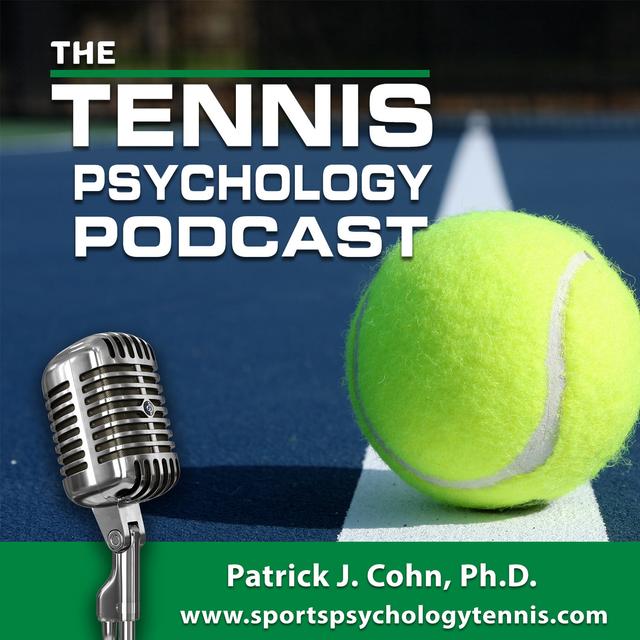¶ Introduction to Tennis Psychology
You're listening to the Tennis Psychology Podcast with mental game of tennis expert, Dr. Patrick Cohn. Do you want to improve your mindset for tennis? Then join us on the Tennis Psychology Podcast. What's a good return of service routine? Hi, I'm Dr. Patrick Cohn. If you're new to the channel, I'm a mental performance coach at Peak Performance Sports at Peak Sports.
We help you take your practice game to matches more consistently and trust in the skills that you have on match day. You're listening to the Tennis Psychology Podcast. Want to quickly improve your mental game for tennis? Visit www.sportspsychologytennis.com today and download a free ebook titled Six Unforced Mental Errors Tennis Players Make Between Points.
¶ Develop a Good Return of Service Routine
Up to this point, I've been talking a lot about between point routines and the service routine. I want to shift the focus and talk a little bit about what is a good return of service routine. Many of the same principles apply that I have been talking about. The very first step is letting go of the last point. That means getting the monkey off your back.
And you simply turn your back to the court or you go to the fence or you go to your towel, give yourself a little talking to, and you say, that point's over. That's in the past. I can't get it back. Let's get 100% committed to the next point. And then when you turn around and you face the court to set up for your return of service. then you're in the right frame of mind. Because you want to be 100% focused.
on the next point and not have that split focus between the last point and trying to get ready for the next point. Now the planning and programming stage is a little bit different for the return of serve. In terms of the planning stage, you really have three options. You're going to return it back down the line, back down the middle, or cross court.
Now this is vitally important because I want you to prepare your mind for all three. You prepare your mind for all three options so that you can be in a very reactionary mindset. Because you don't have a lot of time to think when it comes to return a serve. So you want to pre-think or pre-imagine what you're going to do with the serve based upon the service that you get.
So for example, let's say you're planning for or you're preparing for an out wide. I want you to think about what am I going to do with the out wide? I'm going to go back cross court, potentially. Then you're going to visualize or feel yourself taking the ball across court and reacting to the ball. Same within the body. What are you going to do if the serve comes into the body? Which way are you going to step?
to take the serve. And you want to visualize that and pre-play that. Are you going to block it back on a first serve? Are you going to step and you're going to hit a short stroke with your forehand or with your backhand? And then down the line, of course, I want you to visualize maybe you're going to sling it back straight down the center of the court for a first serve. Maybe that's the easiest option for you. Or maybe you're going to take it inside out.
Whatever the case may be is you're pre-playing that serve in your mind so you can react once you see the serve. Now you might do that. with all three serve locations, down the tee, out wide, into the body, you might pre-play all of those. Or, based upon what your opponent's throwing at you, then you might just visualize what you're going to do with the out wide or down the tee, for example. So it's vitally important that you plan and that you program yourself to...
Basically, react to the ball. You don't have any time to think about it. It's like baseball. Baseball players have less than a half a second to react to that pitch. It's the same in your case. You have very little time to think. So think ahead about what you want to do with that out wide serve, that down the middle and into the body serve and be prepared to react. No thinking necessary. Hope that was helpful. If you want more information.
More podcasts, videos, articles, jump over to sportspsychologytennis.com. And also, you can contact us if you're interested in the one-on-one mental coaching for tennis players. Thanks for listening. Thank you for listening to the tennis psychology podcast with Dr. Patrick Cohn. Discover the secrets to superior tennis confidence by visiting www.sportspsychologytennis.com for practical mental game strategies to improve your tennis game.
